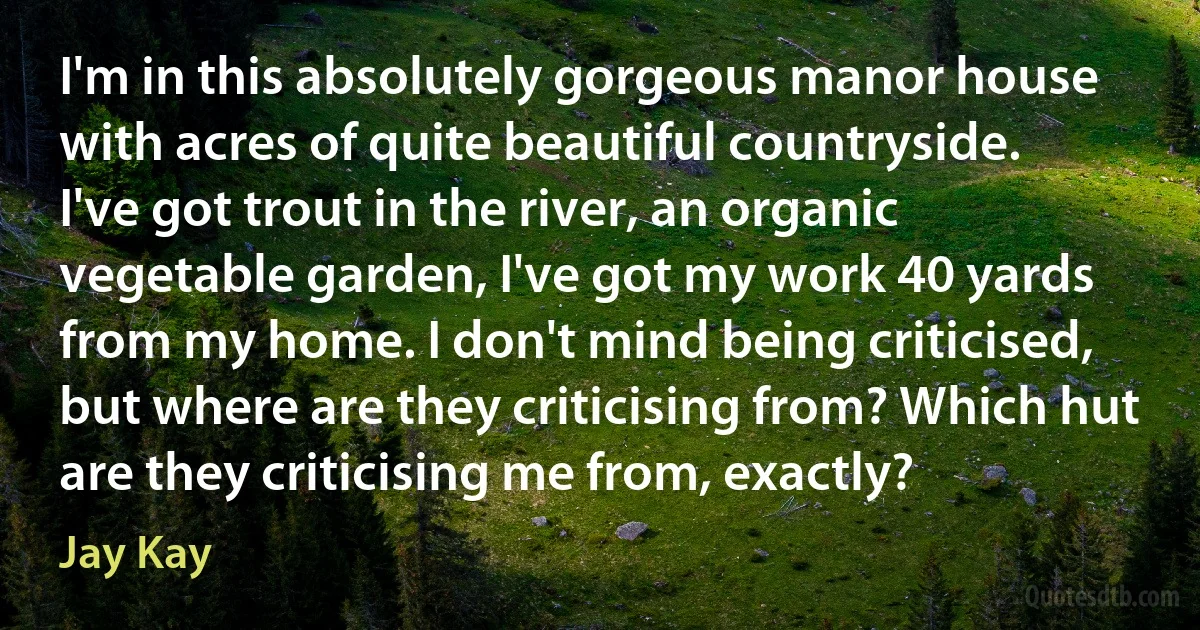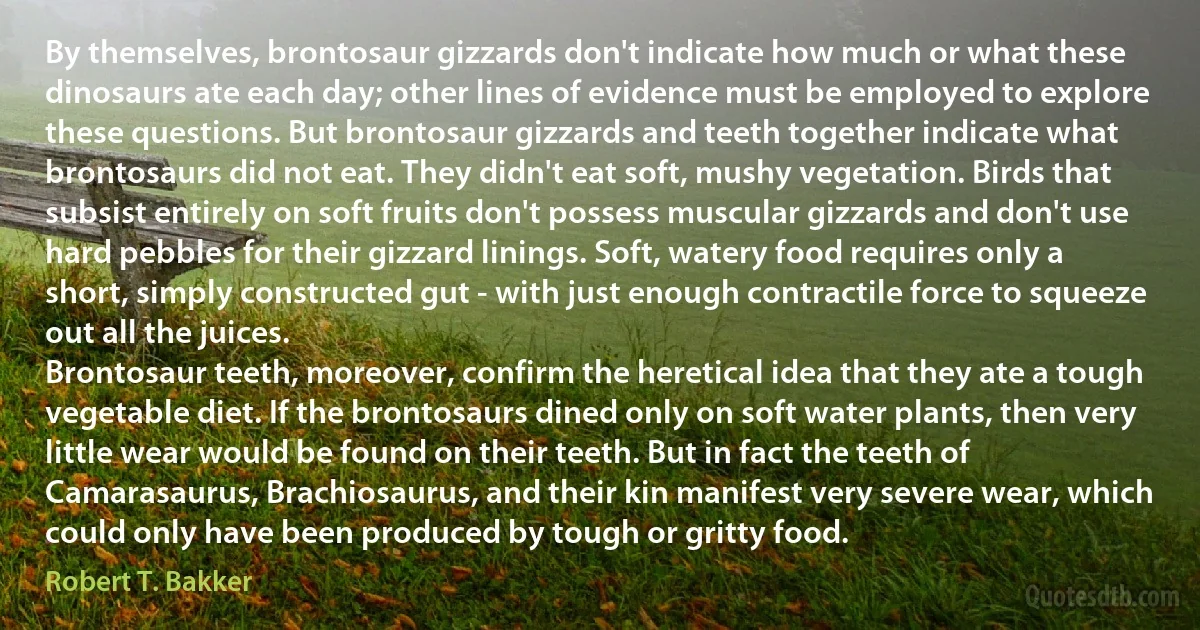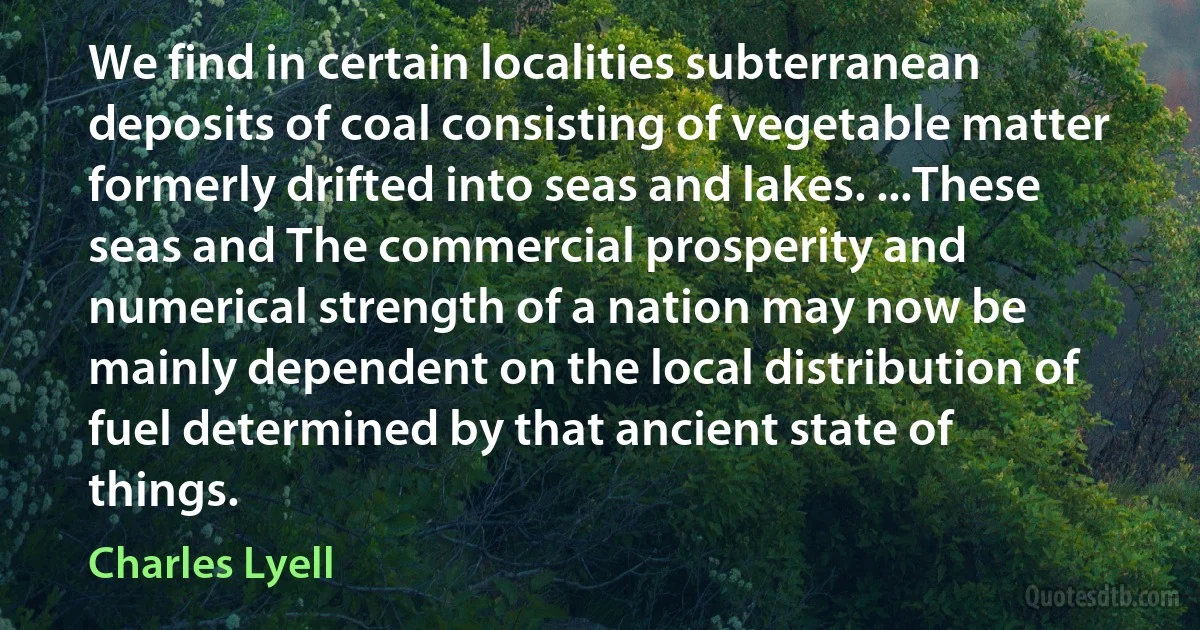Vegetable Quotes - page 3
If nature has made you a bat, you shouldn't try and be an ostrich. You consider yourself odd at times, you accuse yourself of taking a road different from most people. You have to unlearn that! Gaze into the fire, the clouds and as soon as the inner voices begin to speak - surrender to them. Don't ask first whether it is permitted or would please your teachers or your father or some God. You will ruin yourself if you do that. That way you will become earth bound, a vegetable.

Hermann Hesse
The young artists of to-day understand nothing; they copy to satiety the classic ornaments and designs, and reproduce them in so cold a manner that they lose all meaning. The ancients obtained their designs from nature. They found their models in the garden, even in the vegetable garden. They drew their inspiration from its source. The cabbage-leaf, the oak-leaf, the clover, the thistle, and the brier are the motives of the Gothic capital. It is not photographic truth, but living truth, that we must seek in art.

Auguste Rodin
With a long slow stride, limping a little from his blistered feet, Bud walked down Broadway, past empty lots where tin cans glittered among grass and sumach bushes and ragweed, between ranks of billboards and Bull Durham signs, past shanties and abandoned squatters' shacks, past gulches heaped with wheelscarred rubbishpiles where dumpcarts were dumping ashes and clinkers, past knobs of gray outcrop where steamdrills continually tapped and nibbled, past excavations out of which wagons full of rock and clay toiled up plank roads to the street, until he was walking on new sidewalks along a row of yellow brick apartment houses, looking in the windows of grocery stores, Chinese laundries, lunchrooms, flower and vegetable shops, tailors', delicatessens. (pp. 23-24)

John Dos Passos
Then a sentimental passion of a vegetable fashion must excite your languid spleen,
An attachment à la Plato for a bashful young potato, or a not-too-French French bean!
Though the Philistines may jostle, you will rank as an apostle in the high aesthetic band,
If you walk down Piccadilly with a poppy or a lily in your medieval hand.

W. S. Gilbert
A t that moment, a Colonel of Sanitation came striding by, in his green uniform. "You there!” he cried. "Ho, dragon, stop and patter for a bit. Quickly, quickly-haven't got all day! There are Mr. Goodbar wrappers in the streets still, after all my efforts, and the efforts of my men, day in day out-people, people, if we could just do something about the people, then perhaps an end to the endlessness. One could go home of a Friday night, and wipe the brow, and doff the uniform, and thank God for a day well squandered. But you-you have a strange aspect. What kind of a thing are you? Are you disposable? Biodegradable? Ordinary citizen out for a stroll? Looking for work? Member of a conspiracy? Vegetable? Mineral? Two-valued? Hostile to the national interest of the Department of Sanitation? Thrill-crazed kid? Objet d'art? Circus in town?”.

Donald Barthelme
I have often thought, if it was not for this Tyranny which Custom usurps over us, that Men of any tolerable Good-nature could never be reconcil'd to the killing of so many Animals for their daily Food, as long as the bountiful Earth so plentifully provides them with Varieties of vegetable Dainties.

Bernard Mandeville
When I behold this I sighed, and said within myself, "Surely mortal man is a broomstick!" Nature sent him into the world strong and lusty, in a thriving condition, wearing his own hair on his head, the proper branches of this reasoning vegetable, till the axe of intemperance has lopped off his green boughs, and left him a withered trunk; he then flies to art, and puts on a periwig, valuing himself upon an unnatural bundle of hairs, all covered with powder, that never grew on his head; but now should this our broomstick pretend to enter the scene, proud of those birchen spoils it never bore, and all covered with dust, through the sweepings of the finest lady's chamber, we should be apt to ridicule and despise its vanity. Partial judges that we are of our own excellencies, and other men's defaults!

Jonathan Swift
It is difficult to make a general judgement about genetic modification (GM), whether vegetable or animal, medical or agricultural, since these vary greatly among themselves and call for specific considerations. The risks involved are not always due to the techniques used, but rather to their improper or excessive application. Genetic mutations, in fact, have often been, and continue to be, caused by nature itself. Nor are mutations caused by human intervention a modern phenomenon. The domestication of animals, the crossbreeding of species and other older and universally accepted practices can be mentioned as examples. We need but recall that scientific developments in GM cereals began with the observation of natural bacteria which spontaneously modified plant genomes. In nature, however, this process is slow and cannot be compared to the fast pace induced by contemporary technological advances, even when the latter build upon several centuries of scientific progress.

Pope Francis
After winning the final battle, when the Muslims rushed violently, like a stormy wind, through Sindh, they went on beheading these Buddhists even more ruthlessly than they did the Vedic Hindus. For, the Vedic Hindus were fighting in groups or individually at every place and so they struck at least a little awe and terror in the minds of the Muslims. But as there was no armed opposition in Buddhist Vihars and Buddhist localities, the Muslims cut them down as easily as they would cut vegetable.

Vinayak Damodar Savarkar
Power is in nature the essential measure of right. Nature suffers nothing to remain in her kingdoms which cannot help itself. The genesis and maturation of a planet, its poise and orbit, the bended tree recovering itself from the strong wind, the vital resources of every animal and vegetable, are demonstrations of the self-sufficing, and therefore self-relying soul.

Ralph Waldo Emerson
Bernard Shaw says that as long as men torture and slay animals and eat their flesh we shall have war. I think all sane, thinking people must be of his opinion. The children of my school were all vegetarians, and grew strong and beautiful on a vegetable and fruit diet. Sometimes during the war when I heard the cries of the wounded I thought of the cries of the animals in the slaughterhouse, and I felt that, as we torture these poor defenceless creatures, so the gods torture us. Who loves this horrible thing called war? Probably the meat-eaters, having killed, feel the need to kill-kill birds, animals-the tender stricken deer-hunt foxes. The butcher with his bloody apron incites bloodshed, murder. Why not? From cutting the throat of a young calf to cutting the throat of our brothers and sisters is but a step. While we are ourselves the living graves of murdered animals, how can we expect any ideal conditions on the earth?

Isadora Duncan
Houses, are but badly built boats so firmly aground that you cannot think of moving them. They are definitely inferior things, belonging to the vegetable not the animal world, rooted and stationary, incapable of gay transition. I admit, doubtfully, as exceptions, snail-shells and caravans. The desire to build a house is the tired wish of a man content thenceforward with a single anchorage. The desire to build a boat is the desire of youth, unwilling yet to accept the idea of a final resting-place.

Arthur Ransome
The sect of Stoics adopted most fully the system of catastrophes destined at certain intervals to destroy the world. These they taught were of two kinds-the Cataclysm, or destruction by deluge, which sweeps away the whole human race, and annihilates all the animal and vegetable productions of nature; and the Ekpyrosis, or conflagration, which dissolves the globe itself. From the Egyptians also they derived the doctrine of the gradual debasement of man from a state of innocence. Towards the termination of each era the gods could no longer bear with the wickedness of men, and a shock of the elements or a deluge overwhelmed them; after which calamity, Astrea again descended on the earth, to renew the golden age.

Charles Lyell
Agriculture is the art of deriving from the earth the most valuable organic productions. He who exercises this art, seeks to obtain profit by causing to grow, and by using, its animal and vegetable productions. The more considerable the gain derived, therefore, the better is the object accomplished. The most perfect agriculture is, evidently, that which produces, by the application of labour, the largest and the most permanent profit in comparison with the means employed. Systematic agriculture ought, then, to teach us all the circumstances by means of which we may derive the most considerable profit by the practice of the art.

Albrecht Thaer



